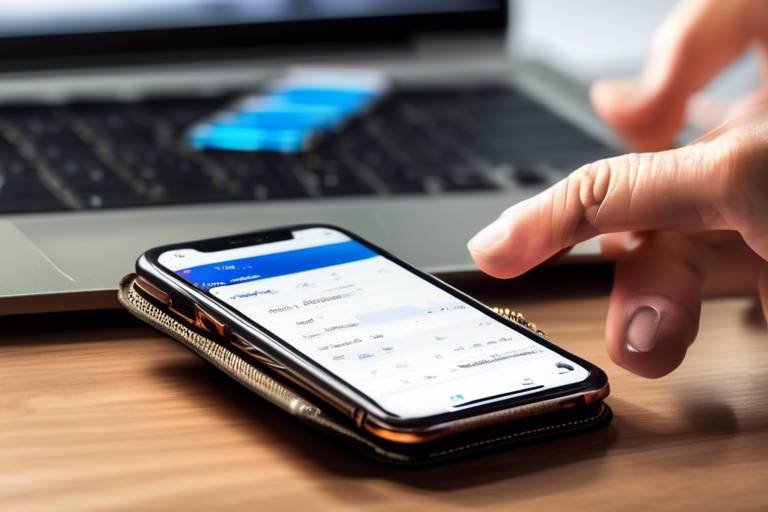How to Create a Comprehensive Wallet Security Checklist
In today's digital age, security is paramount. Whether you're dealing with cryptocurrencies or simply managing digital assets, a comprehensive wallet security checklist can be your best ally against theft and fraud. Just like you wouldn't leave your house unlocked, you shouldn't leave your digital wallet vulnerable either. This article will guide you through the essential practices you need to incorporate into your wallet security checklist to keep your assets safe.
Wallet security encompasses various strategies and practices designed to protect your assets. Understanding its importance is the first step towards safeguarding your financial information and preventing unauthorized access. Think of your wallet as a treasure chest; if you don’t know how to protect it, someone might just take your treasure. By being proactive and informed, you can significantly reduce the risk of falling victim to fraud.
When it comes to wallets, there are three primary types: hardware, software, and paper wallets. Each type serves distinct purposes and comes with its own set of security features and vulnerabilities. Knowing the differences can help you make informed choices about which wallet suits your needs best. For instance, while hardware wallets offer enhanced security, software wallets provide convenience for daily transactions. It's essential to weigh the pros and cons of each type before deciding how to store your assets.
Hardware wallets are like the Fort Knox of digital asset storage. They offer enhanced security by storing private keys offline, making them less susceptible to hacking. For cryptocurrency users, this is particularly appealing, as it provides peace of mind knowing that their assets are protected from online threats. Imagine having a safe that only you can access, locked away from prying eyes—this is essentially what a hardware wallet does for your digital assets.
The primary benefits of hardware wallets include:
- Increased Security: By keeping your private keys offline, you're significantly reducing the risk of hacking.
- User Control: You have complete control over your private keys, which is crucial for asset management.
- Compatibility: Many hardware wallets support various cryptocurrencies, making them ideal for serious investors.
When it comes to selecting the right hardware wallet, consider factors such as security features, user experience, and compatibility with different currencies. Researching options can help you find the best fit for your needs. Don’t just pick the first one you see; think of it as choosing a car—consider your budget, the features you want, and how it will serve you in the long run.
On the other hand, software wallets provide convenience for daily transactions but come with increased risks. They are perfect for quick access to your funds, but it’s essential to understand their security measures to protect your assets. Think of software wallets as your everyday wallet—handy but requiring vigilance to avoid losing it or having it stolen. Ensure that you have robust security measures in place, such as two-factor authentication, to bolster your protection.
Implementing best practices is crucial for maintaining wallet security. Below are some essential strategies to enhance your wallet's protection against potential threats and vulnerabilities:
Keeping your wallet software updated is vital for ensuring security. Updates often include patches for vulnerabilities, helping to protect your assets from emerging threats. Just like you wouldn’t ignore a warning to update your phone’s software, don’t ignore updates for your wallet. They are your first line of defense against potential attacks.
Creating strong, unique passwords for your wallets is essential. This practice helps prevent unauthorized access and enhances the overall security of your digital assets. A strong password is like a sturdy lock on your front door—if it’s weak, it’s an easy target. Aim for a mix of letters, numbers, and symbols, and avoid using easily guessable information like birthdays or names.
Q: What is the safest type of wallet for my digital assets?
A: Hardware wallets are generally considered the safest option due to their offline storage capabilities.
Q: How often should I update my wallet software?
A: Regularly check for updates, ideally every time you log in, to ensure you have the latest security features.
Q: Can I use the same password for multiple wallets?
A: No, using unique passwords for each wallet enhances security and reduces the risk of multiple accounts being compromised.

Understanding Wallet Security
Wallet security encompasses a variety of strategies and practices designed to protect your assets, both digital and physical. In today's fast-paced digital world, where transactions happen at the speed of light, understanding the importance of wallet security is not just beneficial—it's essential. Imagine your wallet as a treasure chest; without the right locks and guards in place, it's just waiting to be plundered. So, what does it really mean to secure your wallet?
At its core, wallet security is about safeguarding your financial information and preventing unauthorized access. This involves a combination of technical measures, such as encryption and secure storage, alongside personal practices, like using strong passwords and being cautious about phishing attempts. The reality is, hackers are always on the prowl, looking for vulnerabilities to exploit. Therefore, knowing how to fortify your wallet against these threats is crucial.
One of the first steps in establishing wallet security is recognizing the types of threats that exist. These can include:
- Phishing Attacks: Scammers may attempt to trick you into providing your private keys or passwords through fake websites or emails.
- Malware: Malicious software can infiltrate your device, potentially giving hackers access to your wallet.
- Physical Theft: If someone gains access to your hardware wallet, they can steal your assets directly.
Understanding these threats is just the beginning. The next step is to implement robust security practices tailored to your specific wallet type. For example, if you're using a hardware wallet, you might focus on keeping it in a secure location and regularly updating its firmware. On the other hand, if you're using a software wallet, you should prioritize strong passwords and two-factor authentication.
Moreover, it's important to stay informed about the latest security trends and updates in the cryptocurrency world. The landscape is constantly evolving, and what worked yesterday might not be sufficient tomorrow. By subscribing to relevant news sources and participating in community discussions, you can keep your knowledge fresh and your wallet secure.
In conclusion, wallet security is not a one-time effort but an ongoing commitment. Just like a knight must constantly sharpen his sword and polish his armor, you too must remain vigilant and proactive in protecting your digital assets. With the right knowledge and practices, you can ensure that your treasure chest stays safe from unwanted hands.

Types of Wallets
When it comes to managing your digital assets, understanding the different is crucial. Each wallet type serves a unique purpose and comes with its own set of security features and vulnerabilities. This knowledge empowers you to make informed choices about how to best protect your assets. Let's dive into the three primary categories of wallets: hardware, software, and paper wallets.
Hardware wallets are physical devices designed to store your private keys offline. This offline storage means they are significantly less susceptible to hacking attempts, making them an excellent choice for long-term asset storage, especially for cryptocurrency enthusiasts. Imagine your hardware wallet as a safe deposit box in a bank—it's secure, and only you have the key. These wallets often come equipped with additional security features, such as PIN codes and recovery phrases, adding layers of protection against unauthorized access.
The primary benefits of hardware wallets are numerous:
- Enhanced Security: Since they store your keys offline, hardware wallets are less vulnerable to online threats.
- User Control: You maintain complete control over your private keys, minimizing reliance on third-party services.
- Multi-Currency Support: Many hardware wallets are compatible with various cryptocurrencies, making them versatile for serious investors.
In a world where cyber threats loom large, having a hardware wallet is akin to having a fortress for your digital wealth.
When selecting the right hardware wallet, it’s essential to consider several factors:
- Security Features: Look for wallets that offer robust security measures, such as two-factor authentication and biometric access.
- User Experience: The wallet should be user-friendly, allowing you to navigate easily through its features.
- Compatibility: Ensure that the wallet supports the cryptocurrencies you intend to store.
Doing your homework and researching options can help you find the best fit for your needs, just like finding the perfect home for your treasured belongings.
Software wallets provide a more convenient option for daily transactions. They can be accessed via desktop or mobile applications, allowing you to manage your assets on the go. However, this convenience comes with increased risks. Software wallets are often connected to the internet, making them more vulnerable to hacking and phishing attacks. Think of them as a wallet you carry in your pocket—easy to access but also easy to lose if you’re not careful. To mitigate risks, it’s essential to understand the security measures provided by your software wallet, such as encryption and backup options.
Finally, we have paper wallets, which are essentially physical printouts of your public and private keys. While they might seem old-fashioned, they can be incredibly secure if created and stored correctly. A paper wallet is like a treasure map that only you possess. However, if not handled properly, they can be easily damaged or lost. Therefore, if you choose this route, ensure you keep your paper wallet in a safe place and consider making multiple copies to avoid any unfortunate mishaps.
In summary, understanding the different types of wallets is vital for anyone looking to protect their digital assets. Whether you opt for the robust security of a hardware wallet, the convenience of a software wallet, or the simplicity of a paper wallet, each choice comes with its own set of advantages and challenges. Always weigh your options carefully and choose the wallet that aligns best with your security needs and lifestyle.
Q1: What is the safest type of wallet for cryptocurrency?
A1: Hardware wallets are generally considered the safest option because they store your private keys offline, reducing the risk of hacking.
Q2: Can I use a software wallet for long-term storage?
A2: While you can use a software wallet for long-term storage, it’s not recommended due to the increased risk of online threats. Hardware wallets are a better choice for long-term holdings.
Q3: How do I create a paper wallet?
A3: You can create a paper wallet using a trusted generator and ensuring you are offline to minimize risks. Always print and store it securely.

Hardware Wallets
When it comes to securing your digital assets, are like the vaults of the cryptocurrency world. They are physical devices that store your private keys offline, making them significantly less vulnerable to hacking attempts compared to their software counterparts. Imagine a bank vault that only you have the key to; that’s essentially what a hardware wallet does for your cryptocurrencies. By keeping your assets offline, you create a barrier that protects them from online threats, which are unfortunately rampant in today's digital landscape.
These wallets come in various shapes and sizes, but they all serve the same fundamental purpose: to provide a secure location for your private keys. One of the standout features of hardware wallets is their ability to support multiple types of cryptocurrencies. This means you can manage different assets without needing multiple wallets, which simplifies the process and enhances security. However, just like any other technology, it's essential to choose wisely. Not all hardware wallets are created equal, and understanding their features can help you make an informed decision.
Here are some key benefits of using hardware wallets:
- Increased Security: Since your private keys are stored offline, the risk of them being hacked is significantly reduced.
- User Control: You have complete control over your private keys, which means you are the only one who can access your funds.
- Compatibility: Most hardware wallets support a wide range of cryptocurrencies, making them versatile for different investors.
However, it's essential to remember that while hardware wallets offer enhanced security, they are not entirely foolproof. Users must still practice good security hygiene, such as keeping their recovery phrases safe and ensuring that the device is purchased from a reputable source. Additionally, make sure to regularly check for firmware updates to keep the wallet secure against new vulnerabilities.
In summary, hardware wallets are a fantastic option for those serious about protecting their digital assets. They combine security with ease of use, making them suitable for both novice and experienced investors. By investing in a reliable hardware wallet, you are taking a significant step towards safeguarding your financial future.
1. What is a hardware wallet?
A hardware wallet is a physical device that securely stores your cryptocurrency private keys offline, providing enhanced security against online threats.
2. Are hardware wallets safe?
Yes, hardware wallets are generally considered safe as they keep your private keys offline, making them less susceptible to hacking.
3. Can I use a hardware wallet for multiple cryptocurrencies?
Most hardware wallets support a variety of cryptocurrencies, allowing you to manage different assets in one place.
4. How do I choose the right hardware wallet?
When selecting a hardware wallet, consider factors such as security features, user experience, compatibility with various cryptocurrencies, and reviews from other users.
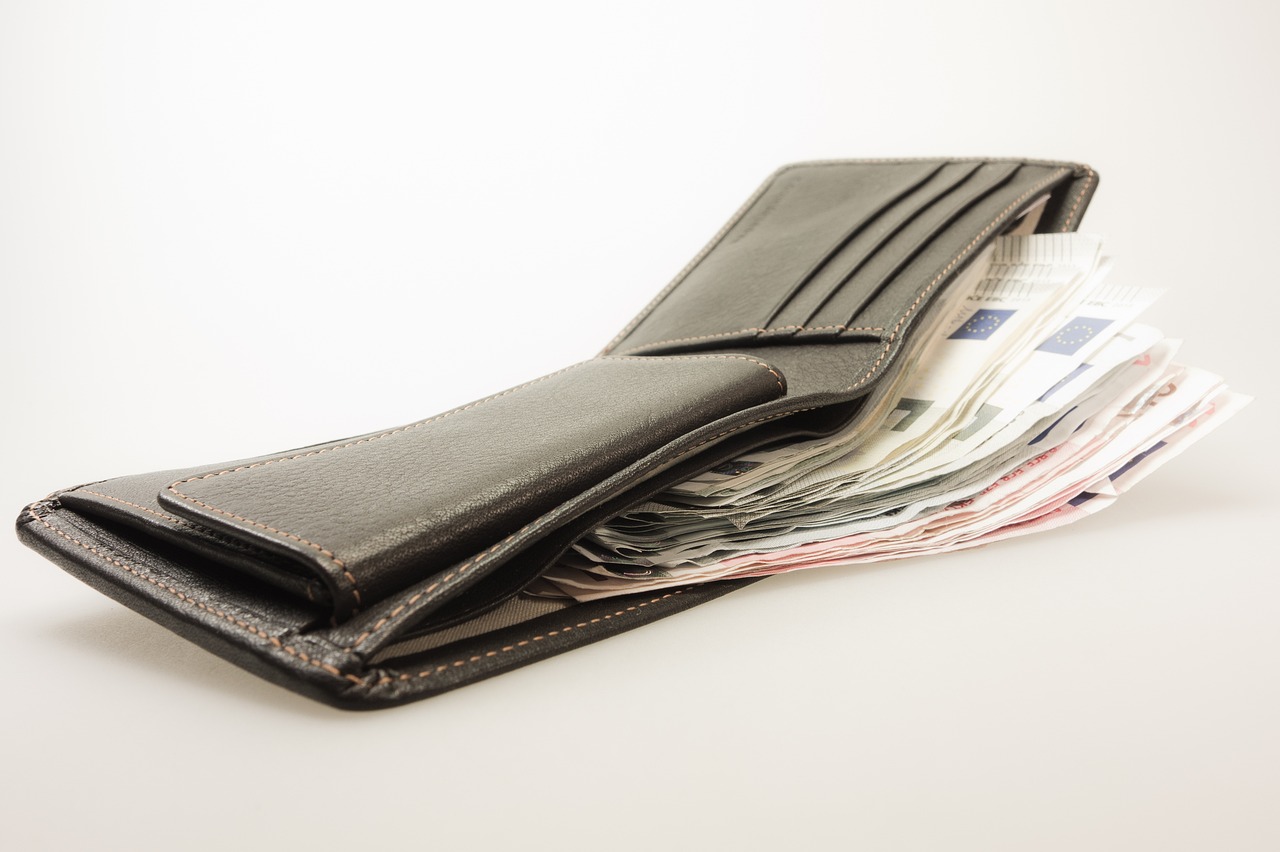
Benefits of Hardware Wallets
When it comes to securing your digital assets, hardware wallets stand out as a fortress against the ever-evolving landscape of cyber threats. One of the most significant benefits of using a hardware wallet is its ability to store your private keys offline. This means they are not exposed to the internet, making them far less vulnerable to hacking attempts. Think of it as keeping your valuables in a safe rather than leaving them out in the open. The offline storage significantly reduces the risk of theft, giving you peace of mind.
Another advantage of hardware wallets is that they provide you with full control over your private keys. Unlike online wallets or exchanges where you rely on third parties to safeguard your assets, hardware wallets empower you to be the sole guardian of your keys. This autonomy is crucial because, as the saying goes, "Not your keys, not your coins." By having direct access to your private keys, you minimize the risk of losing your assets due to exchange hacks or mismanagement.
Furthermore, hardware wallets are designed to be compatible with a wide range of cryptocurrencies. Whether you're investing in Bitcoin, Ethereum, or lesser-known altcoins, most hardware wallets support various tokens. This versatility makes them an ideal choice for serious investors who want to diversify their portfolios without worrying about the security of their holdings.
To illustrate the benefits clearly, here's a quick comparison of hardware wallets versus other wallet types:
| Feature | Hardware Wallets | Software Wallets | Paper Wallets |
|---|---|---|---|
| Security Level | High | Medium | Medium |
| Control Over Keys | Full Control | Partial Control | Full Control |
| Convenience for Transactions | Low | High | Low |
| Best For | Long-term Storage | Daily Transactions | Cold Storage |
In summary, hardware wallets offer a trifecta of benefits: enhanced security, user control, and broad compatibility with various cryptocurrencies. If you're serious about protecting your digital wealth, investing in a hardware wallet is a decision you won't regret. As the digital landscape continues to evolve, ensuring the security of your assets should be your top priority.
- What is a hardware wallet? A hardware wallet is a physical device that stores your private keys offline, providing a secure way to manage cryptocurrencies.
- Are hardware wallets safe? Yes, hardware wallets are considered one of the safest options for storing cryptocurrencies because they are not connected to the internet.
- Can I use a hardware wallet for multiple cryptocurrencies? Most hardware wallets support a wide range of cryptocurrencies, making them versatile for various investments.
- Do I need to backup my hardware wallet? Yes, it's essential to create a backup of your hardware wallet recovery phrase to recover your assets in case the device is lost or damaged.
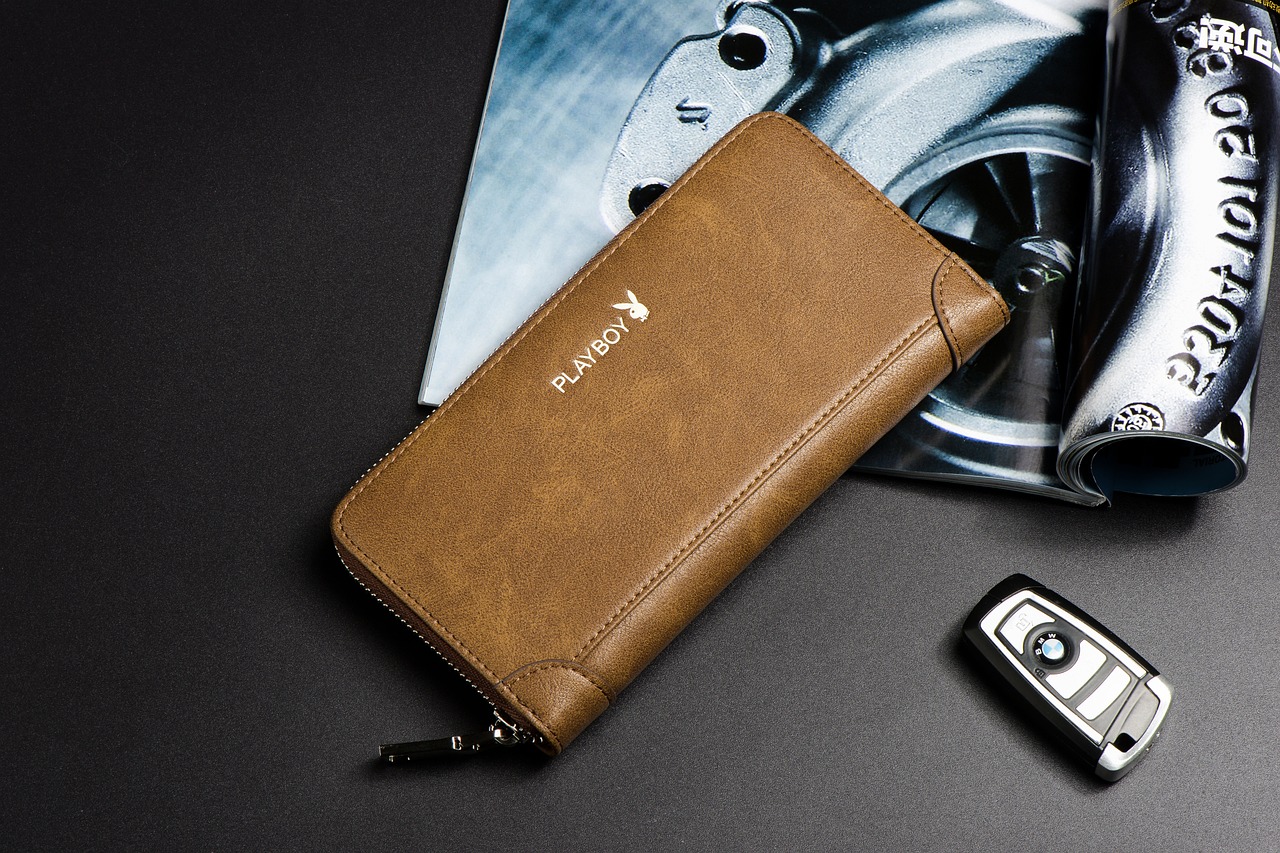
Choosing the Right Hardware Wallet
When it comes to selecting the perfect hardware wallet, it's essential to consider several key factors that can significantly impact your experience and security. Imagine you're shopping for a new car; you wouldn't just pick the first shiny model you see without checking its safety ratings, fuel efficiency, and compatibility with your lifestyle. The same principle applies to hardware wallets.
First and foremost, security features are paramount. Look for wallets that offer robust encryption, two-factor authentication, and backup options. These features act like the security system in your car, ensuring that your assets are well-protected against unauthorized access. Also, consider the wallet's reputation in the market. Research reviews and testimonials from other users to gauge how well it performs in real-world scenarios. A wallet with a solid track record is akin to a car brand known for reliability.
Next, think about user experience. A wallet that is difficult to navigate can be frustrating and may lead to mistakes. Ideally, you want a wallet that is intuitive and user-friendly, allowing you to manage your assets without a steep learning curve. This is similar to choosing a car with comfortable seating and easy controls; you want to feel at ease while using it.
Compatibility with various cryptocurrencies is another crucial factor to consider. Not all wallets support every coin, so if you have a diverse portfolio, ensure that the wallet you choose can accommodate all your digital assets. It's like ensuring your car has enough trunk space for all your gear on a road trip. A wallet that offers a wide range of supported currencies will give you the flexibility to manage your investments without hassle.
Lastly, take into account the price of the hardware wallet. While it might be tempting to go for the cheapest option, remember that you often get what you pay for. Investing in a higher-quality wallet can save you from potential losses in the long run, much like opting for a reliable car over a budget model that may break down frequently.
In summary, choosing the right hardware wallet is a multifaceted decision that requires careful consideration of security features, user experience, compatibility, and price. By taking the time to evaluate these aspects, you can ensure that your assets are well-protected and easily accessible, allowing you to focus on what truly matters—growing your investments.
- What is a hardware wallet? A hardware wallet is a physical device that securely stores your cryptocurrency private keys offline, making it less vulnerable to hacking.
- Are hardware wallets safe? Yes, hardware wallets are generally considered one of the safest options for storing cryptocurrencies, especially when compared to software wallets.
- Can I use multiple hardware wallets? Absolutely! Many users opt for multiple hardware wallets to diversify their security and manage different assets.
- How do I set up a hardware wallet? Setting up a hardware wallet typically involves initializing the device, creating a secure PIN, and backing up your recovery phrase.
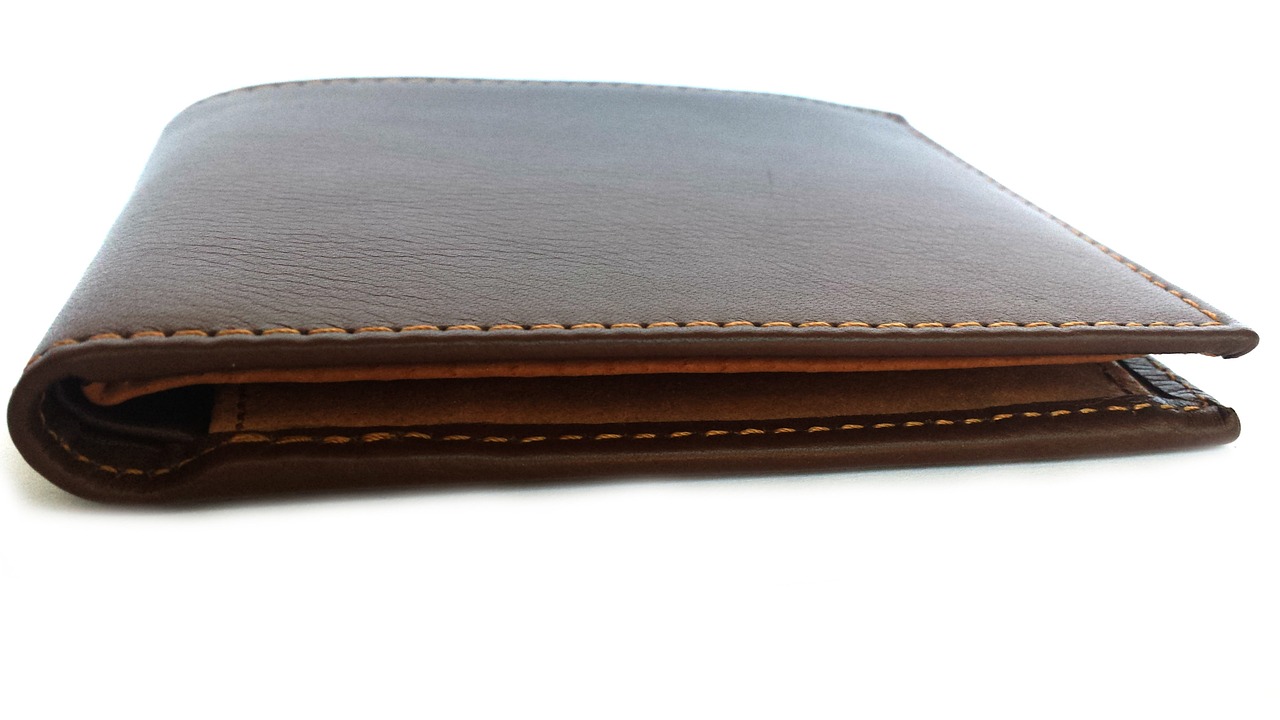
Software Wallets
Software wallets are a popular choice for many users due to their convenience and accessibility. Unlike hardware wallets, which require a physical device, software wallets can be easily installed on your computer or mobile device. This means you can access your funds anytime, anywhere, making them ideal for daily transactions. However, with this convenience comes a set of risks that you must be aware of to keep your assets safe.
One of the main advantages of software wallets is their user-friendly interfaces. Most wallets come with intuitive designs that allow even beginners to navigate through their features with ease. For instance, sending and receiving cryptocurrencies can be as simple as entering an email address or scanning a QR code. However, this simplicity can also lead to negligence regarding security. Users might forget to implement necessary precautions, leaving their assets vulnerable.
When choosing a software wallet, it’s crucial to consider the following factors to enhance your security:
- Reputation: Always opt for wallets with positive reviews and a strong track record in the community.
- Security Features: Look for wallets that offer two-factor authentication (2FA), encryption, and backup options.
- Control Over Private Keys: Some wallets allow you to control your private keys, which is essential for maintaining ownership of your assets.
Despite the benefits, software wallets are more susceptible to hacking and malware attacks compared to their hardware counterparts. Cybercriminals often target users who may not be as vigilant with their security practices. Therefore, it’s essential to take proactive measures, such as regularly updating your software to patch any vulnerabilities and using strong, unique passwords that are difficult to guess.
In conclusion, while software wallets offer unparalleled convenience for managing your digital assets, they also come with inherent risks that users must navigate carefully. By following best practices and staying informed about the latest security trends, you can significantly reduce the likelihood of falling victim to fraud or theft.
Here are some common questions regarding software wallets:
- Are software wallets safe? While they offer convenience, they can be less secure than hardware wallets. It's crucial to implement strong security practices.
- Can I recover my funds if I lose access to my software wallet? Most wallets provide backup options, but it’s essential to follow the recovery instructions provided by the wallet service.
- What should I do if I suspect my wallet has been compromised? Immediately change your password, enable two-factor authentication, and consider moving your assets to a more secure wallet.
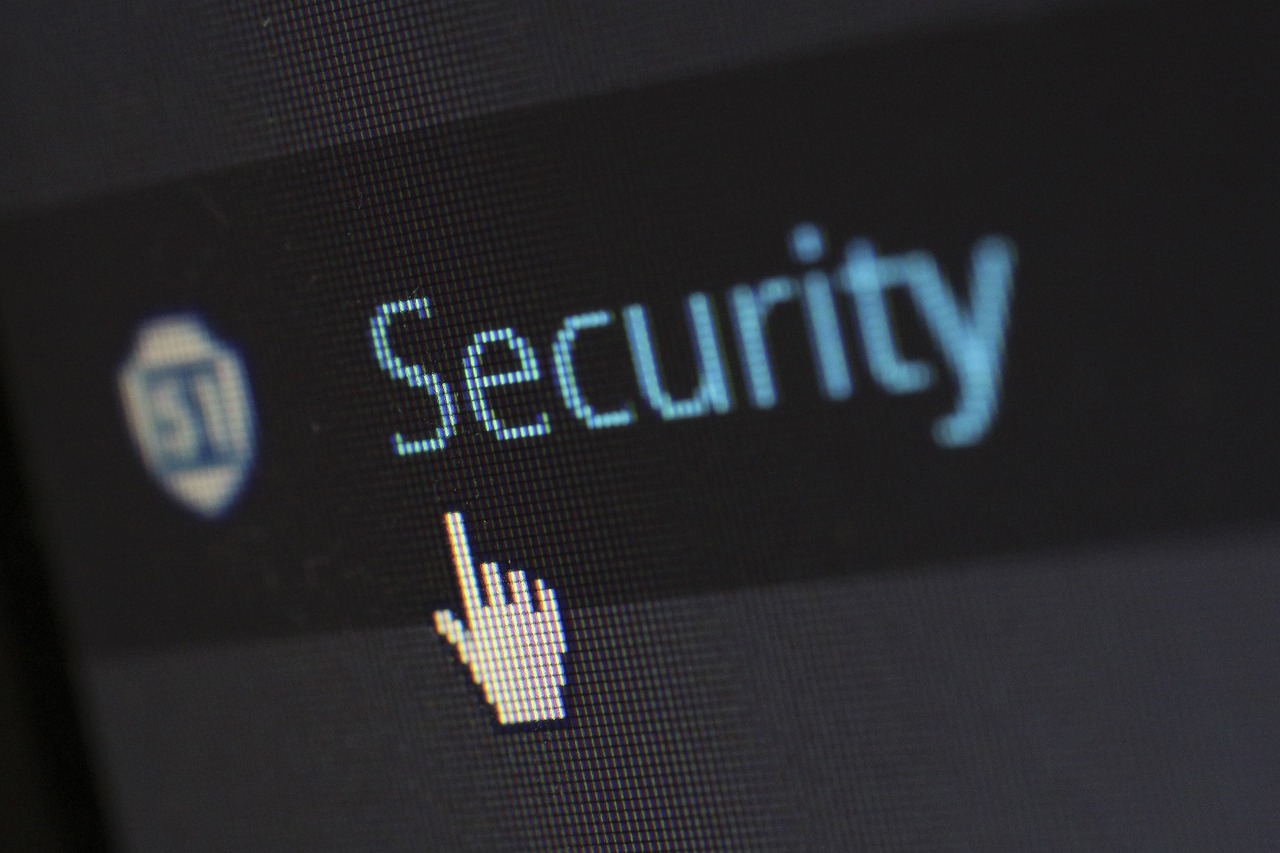
Best Practices for Wallet Security
When it comes to wallet security, implementing best practices is not just a recommendation; it’s a necessity. Think of your digital assets as a treasure chest. You wouldn’t leave that chest wide open for anyone to take a peek, would you? Just like you would secure your physical valuables, you need to take proactive steps to protect your digital wealth. Here are some essential strategies you should consider:
First and foremost, regular software updates are crucial. Just like your smartphone or computer, wallet software needs to be updated to patch vulnerabilities and enhance security features. Cyber threats evolve rapidly, and keeping your software updated ensures you have the latest protections against potential breaches. So, make it a habit to check for updates regularly; it’s a small task that can save you from significant headaches down the line!
Another vital aspect is the use of strong passwords. Creating strong, unique passwords for your wallets is akin to locking your treasure chest with a robust, complex lock. Avoid using easily guessable information like birthdays or common words. Instead, consider using a mix of uppercase and lowercase letters, numbers, and special characters. A password manager can help you generate and store complex passwords securely, making it easier to maintain high security without the risk of forgetting your credentials.
In addition to strong passwords, it’s essential to enable two-factor authentication (2FA) wherever possible. This adds an extra layer of security by requiring not just your password but also a second form of verification, such as a code sent to your phone. Imagine needing two keys to unlock your treasure chest instead of just one; this significantly reduces the chances of unauthorized access.
Moreover, you should always be cautious about phishing attacks. Cybercriminals often use deceptive emails or messages to trick you into revealing sensitive information. Be skeptical of unsolicited communications, and always verify the source before clicking on links or providing any personal information. If something feels off, trust your instincts and double-check before proceeding.
Lastly, consider backing up your wallet data. Just like you would keep a copy of important documents in a safe place, having backups of your wallet can prevent loss in case of device failure or theft. Store this backup in a secure location, such as a hardware device or a secure cloud service, and ensure it’s encrypted to add an extra layer of protection.
- What is the most secure type of wallet?
Hardware wallets are generally considered the most secure option due to their offline storage of private keys. - How often should I update my wallet software?
It's best to check for updates at least once a month or as soon as you receive a notification from the wallet provider. - Can I use the same password for multiple wallets?
No, using the same password across multiple wallets increases the risk of a security breach. Always use unique passwords. - What should I do if I suspect my wallet has been compromised?
Immediately transfer your assets to a new wallet with a secure setup and change your passwords and security settings.

Regular Software Updates
This article provides a detailed guide on creating a wallet security checklist, highlighting essential practices to protect your digital and physical assets from theft and fraud.
Wallet security encompasses various strategies and practices designed to protect your assets. Understanding its importance is the first step towards safeguarding your financial information and preventing unauthorized access.
Different types of wallets serve distinct purposes, including hardware, software, and paper wallets. Each type has unique security features and vulnerabilities that users should be aware of to make informed choices.
Hardware wallets offer enhanced security by storing private keys offline. They are less susceptible to hacking, making them a popular choice for long-term asset storage among cryptocurrency users.
The primary benefits of hardware wallets include increased security, user control over private keys, and compatibility with various cryptocurrencies, making them ideal for serious investors.
Selecting the right hardware wallet involves considering factors such as security features, user experience, and compatibility with different currencies. Researching options can help you find the best fit for your needs.
Software wallets provide convenience for daily transactions but come with increased risks. Understanding their security measures is essential for protecting your assets while enjoying easy access.
Implementing best practices is crucial for maintaining wallet security. This section outlines essential strategies to enhance your wallet's protection against potential threats and vulnerabilities.
Keeping your wallet software updated is vital for ensuring security. Just like how you wouldn’t drive a car with outdated brakes, using outdated wallet software can leave your assets vulnerable to theft and fraud. Software updates often include critical patches that fix known vulnerabilities, making it harder for hackers to exploit your wallet.
Imagine your wallet as a fortress; without regular maintenance and upgrades, it becomes easier for intruders to breach your defenses. By routinely checking for updates, you can ensure that your wallet is equipped with the latest security features, protecting your assets from emerging threats.
Moreover, the process of updating your wallet software is typically straightforward. Most software wallets will notify you when an update is available, and installing these updates can usually be done with just a few clicks. Here’s a quick checklist to follow when performing updates:
- Check for notifications about available updates.
- Read the release notes to understand what vulnerabilities have been addressed.
- Backup your wallet before initiating the update.
- Install the update and verify that the wallet functions correctly post-update.
By adhering to this simple practice, you significantly reduce the risk of unauthorized access to your assets. Remember, in the digital world, staying one step ahead of potential threats is not just smart; it's essential.
- Why are regular software updates important? Regular software updates are crucial as they patch security vulnerabilities, ensuring your wallet is protected against the latest threats.
- How often should I update my wallet software? It’s best to check for updates at least once a month or whenever you receive a notification from your wallet provider.
- What should I do if I encounter issues after an update? If you experience problems post-update, consult the wallet's support page or community forums for troubleshooting tips.

Using Strong Passwords
In today's digital world, where cyber threats loom larger than ever, using strong passwords is not just a good idea; it's a necessity. Think of your password as the key to your digital vault. If that key is weak or easily guessable, it’s like leaving your front door wide open for anyone to stroll in. So, how do you create a password that stands strong against potential intruders?
First off, a strong password should be at least 12 characters long and include a mix of uppercase letters, lowercase letters, numbers, and special characters. This combination makes it significantly harder for hackers to crack your password through brute force attacks. For instance, instead of using something simple like "password123," consider a more complex alternative like "G!g@N0v3mB3r2023!" which is not only longer but also incorporates various character types.
Another crucial aspect of password security is uniqueness. Never use the same password across multiple sites. If one site gets compromised, it could lead to a domino effect, allowing hackers to access all your accounts. A great way to manage this is by using a password manager. These tools can generate and store complex passwords for you, so you don’t have to remember each one. This way, you can focus on your daily tasks without the worry of password fatigue.
Additionally, consider enabling two-factor authentication (2FA) wherever possible. This adds an extra layer of security by requiring not just your password but also a second piece of information, such as a code sent to your phone. It’s like having a second lock on your door—just in case the first one fails.
Lastly, regularly update your passwords. Just as you wouldn’t wear the same outfit every day for a year, don’t stick to the same password forever. Set reminders to change your passwords every 6 to 12 months. This practice can help mitigate risks, especially if you suspect that your information may have been compromised.
To summarize, here are some key tips for creating strong passwords:
- Use at least 12 characters with a mix of different types.
- Ensure each password is unique to each account.
- Utilize a password manager for convenience.
- Enable two-factor authentication for added security.
- Regularly update your passwords to keep them fresh.
By following these guidelines, you can significantly enhance your wallet security and protect your valuable digital assets from theft and fraud. Remember, your password is your first line of defense—make it count!
Q: How often should I change my passwords?
A: It's recommended to change your passwords every 6 to 12 months, or immediately if you suspect a breach.
Q: What is the best way to store my passwords?
A: Using a reputable password manager is one of the safest ways to store and manage your passwords securely.
Q: Is it safe to use the same password for multiple accounts?
A: No, using the same password across multiple accounts increases the risk of being hacked. Always use unique passwords for each account.
Q: What should I do if I forget my password?
A: Use the password recovery option provided by the website or service. If you use a password manager, it can help you retrieve your passwords.
Frequently Asked Questions
- What is wallet security and why is it important?
Wallet security refers to the practices and measures you take to protect your digital and physical assets from theft and fraud. It's crucial because, in an increasingly digital world, the security of your financial information can mean the difference between safety and significant losses. Think of it as locking your front door; if you don’t secure your wallet, you’re inviting trouble.
- What are the different types of wallets?
There are several types of wallets, including hardware wallets, software wallets, and paper wallets. Hardware wallets store your private keys offline, making them less vulnerable to hacking. Software wallets are more convenient for daily transactions but carry higher risks. Paper wallets are a physical representation of your keys, but if lost or damaged, you could lose access to your assets permanently.
- How do hardware wallets enhance security?
Hardware wallets enhance security by keeping your private keys offline, making them less susceptible to online threats. They are like a safe in your house; even if someone breaks in, they can’t access what’s inside without the key. This makes them a popular choice for serious investors who want to protect their long-term assets.
- What should I consider when choosing a hardware wallet?
When selecting a hardware wallet, consider factors such as security features, user experience, and compatibility with different cryptocurrencies. It's like finding the right pair of shoes; you want something that fits well, feels comfortable, and suits your needs. Researching your options can help you find the perfect match.
- Why is it important to keep wallet software updated?
Keeping your wallet software updated is vital because updates often include patches for vulnerabilities that hackers might exploit. Think of it as getting regular check-ups; it helps ensure everything is running smoothly and securely. An outdated wallet can be a weak link in your security chain.
- How can I create a strong password for my wallet?
To create a strong password, combine upper and lower case letters, numbers, and special characters. Avoid using easily guessable information like birthdays or common words. A strong password is like a fortress; the more complex it is, the harder it is for intruders to break in. Using a password manager can also help you keep track of your unique passwords.










